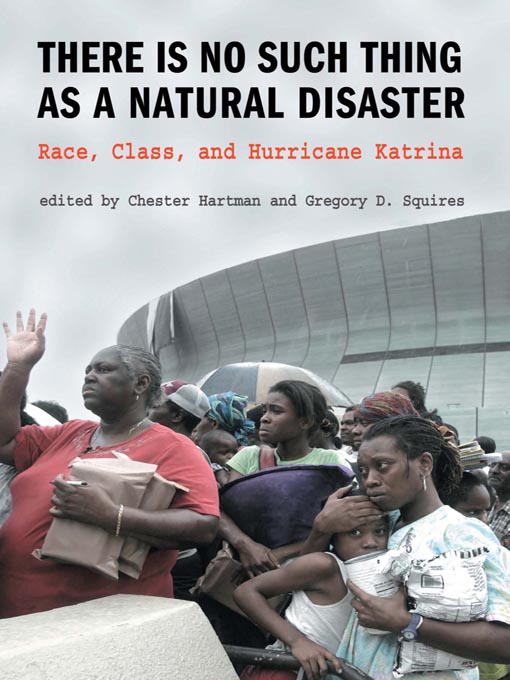There is No Such Thing as a Natural Disaster is the first critical scholarly book on the catastrophic impact of Hurricane Katrina on New Orleans. The disaster will go down in record as one of the worst in American history, not least because of the government's generally inept and cavalier response. But it's also a huge story for other obvious reasons. Firstly, the impact of the hurricane was uneven, and race and class (and tied to this, poverty) were deeply implicated in the unevenness. It was not by accident that the poorest and blackest neighborhoods were the ones that were buried under water. Secondly, the response underscored the impoverishment of social policy (or what passes for it) in both George W. Bush's America and more specifically the Republican-dominated South. Thirdly, New Orleans is not just any place - it's a great American city with a rich and unique history. People care about the place and what happens there. Fourthly, what happened and what will happen there can tell us a great deal about the state of urban and regional planning in contemporary America.
The book, edited by two eminent scholars/authors, gathers together ten excellent scholars to put forth a multifaceted portrait of the social implications of the disaster. And the disaster was primarily social in nature, as the title reminds us. The book covers the response to the disaster and the roles that race and class played, its impact on housing, the historical context of urban disasters in America, the nature of contemporary metropolitan planning, what the hurricane has taught us about planning, the role of the vast prison system in all of this, the future of economic development, the roles of business and the media, and how the hurricane disproportionately impacted female headed households. In total, it offers a critical and comprehensive social portrait of the disaster's catastrophic effects on New Orleans.
- Available now!
- New eBook additions
- New kids additions
- New teen additions
- Most popular
- Always Available eBooks
- See all
- Available now
- AZ's Most Popular Audiobooks
- New Audiobooks
- Always Available Audiobooks
- New kids additions
- New teen additions
- Try something different
- Extremely Funny Audiobooks
- See all

